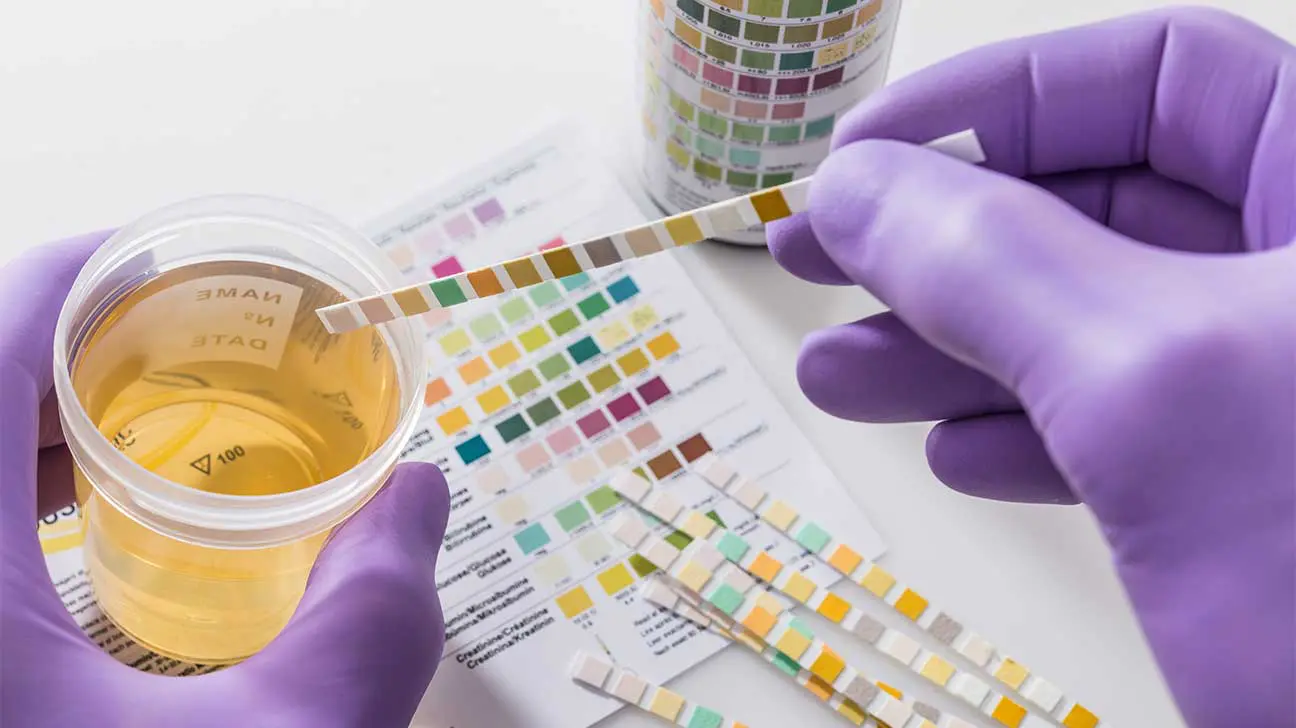
Cocaine is a highly addictive drug that can be detected in urine samples for some time after the effects of the drug have worn off. Although the length of time cocaine stays in the system can vary, urine tests can generally detect cocaine for up to four days after your last use.
Cocaine Detection Time In Urine
Urine tests for cocaine generally screen for benzoylecgonine, a cocaine metabolite. This metabolite can be detected in the urine for a longer period of time than cocaine.
The detection time for a drug refers to the length of time drug use can be detected in the urine and therefore caught by a drug test. The detection window for identifying cocaine in the urine is between one to four days on average.
What Factors Can Affect Detection Time?
Cocaine can stay in the system or leave the system faster in some people compared to others. The amount of time cocaine stays in the system can be influenced by a wide range of factors.
Factors that can affect how long cocaine stays in the system:
- age
- genetics
- hydration level
- body composition (e.g. weight, body fat, height)
- history of drug use
- polydrug/polysubstance abuse
- drug dependence and addiction
- mental health disorders
Chronic use of cocaine may affect how long the drug stays in the system. Chronic cocaine use is a sign of cocaine addiction, which can drastically alter mood, behavior, and health.
What Are Drug Tests Used For?
Drug testing is a common practice in certain settings, particularly in workplaces. Drug screenings are generally used to detect the presence of drugs in the body.
They can also be ordered by doctors to monitor health concerns in patients who are taking certain prescription drugs.
Drug testing may be used for:
- pre-employment screening
- drug-free workplace initiatives
- sports organizations
- legal or forensic purposes
- monitoring opioid use
Healthcare providers may also order drug screenings for people who are showing signs of drug abuse or addiction.
Why Do Workplaces Conduct Drug Screens?
Certain workplaces may require one-time or recurring drug screenings as a condition of employment. This includes settings such as schools, hospitals, and rehab centers.
Drug-free workplace programs are often implemented in order to reduce the risk for issues associated with substance abuse, such as:
- decreased productivity
- high turnover rate
- high healthcare costs
- workplace accidents
- chronic behavioral health problems
- absences
- theft
Cocaine use can be a sign of drug abuse and drug addiction. Cocaine addiction can be treated through detox, inpatient rehab, and outpatient treatment services such as counseling, medication, and support groups.
Signs Of Cocaine Use
Cocaine is a dangerous drug of abuse that can lead to chronic issues with health, employment, relationships, and psychological well-being when misused.
Common signs of cocaine use include:
- runny nose
- track marks
- dramatic weight loss
- extreme talkativeness
- paranoia
- depression
- irritability
- fast heart rate
- increased blood pressure
- high body temperature
Cocaine is highly addictive. Taking it even once can cause disruptions in the brain that can cause cravings to use more.
Chronic use of cocaine can cause frequent crashes, drug dependence, withdrawal, and heightened risk of overdose.
Finding Addiction Treatment For Cocaine
It’s never too early or too late to seek help. Call our helpline today to learn more about the dangers of cocaine abuse and how to find cocaine addiction treatment programs for yourself or a loved one.
Addiction Resource aims to provide only the most current, accurate information in regards to addiction and addiction treatment, which means we only reference the most credible sources available.
These include peer-reviewed journals, government entities and academic institutions, and leaders in addiction healthcare and advocacy. Learn more about how we safeguard our content by viewing our editorial policy.
- U.S. National Library of Medicine: MedlinePlus—Drug Testing
https://medlineplus.gov/lab-tests/drug-testing/ - U.S. Department of Energy: Office of Health, Safety, and Security—Drug Detection Study
https://www.osti.gov/servlets/purl/908420 - U.S. National Institute on Drug Abuse (NIDA)—Drug Testing
https://www.drugabuse.gov/drug-topics/drug-testing


